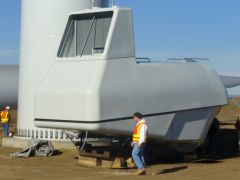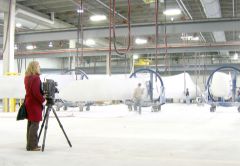Energy Issues: 4 Modern Problems and How to Solve Them
The demand for energy grows as the population of our planet increases. By conserving, recycling, repurposing, and creating new sources of energy, we can get the same job done without depleting our natural resources and adding to pollution. Here are four modern problems surrounding energy issues and how they can be solved.
Sustainable Communities
People living in highly populated urban areas need energy resources in large amounts, creating high demand and large impacts on the environment. Developing energy solutions used in highly populated areas have a major impact. For example, making it easier for people to ride public transit, cycle, or walk for everyday trips conserves energy and reduces the use of fossil fuels. Developing green buildings, which emit less pollution, results in cleaner air and water as well.
Biosolids
The sewage generated from large populated areas was traditionally pumped into the waterways causing pollution. As sewage management progressed, the solids filtered from sewage were transported to landfills or incinerated. None of these methods are earth-friendly. The advent of biosolids, which turns sewage into agricultural materials by using industrial dryers, greatly reduces fuel consumption. Companies like Uzelac Industries use this self-sufficient system to recycle biosolids into useful agricultural materials.
Recycling Food Waste
Today, high volumes of food waste in the beef and poultry industry, as well as many other types of commercial food waste from manufacturing, is a concern for many environmentalists. As organic removal and recycling services grow, they help many food manufacturers reach recycling goals and reduce waste output. The waste collected is recycled into high-energy animal feed ingredients which reduces the amount of waste put into landfills, provides animal feed, and saves energy that would be used to transport and process the waste. Recycling makes a useful product out of material that would otherwise be an adverse issue.
Substitutes for Fossil Fuels
Finding alternatives in place of costly fossil fuels is a need in many industries. Many different types are still being experimented with and studied, like ethanol, biofuels, and hydrogen fuels. Urban waste water can be used as an inexpensive, carbon-neutral substitute for fossil fuels. Using drying systems, large metro areas take the huge levels of sludge a large population generates, and reduces the liquid. Then, this dried sludge can be used to produce energy that's sustainable, easily available and cheaper than fossil fuels.
The levels of energy needed to sustain the population grow each day. Solutions that preserve the environment and conserve energy are important to the health of the planet. To meet that demand, it's important to look to adopting earth-friendly solutions that recycle and conserve energy while creating renewable sources.





0 Comments
Recommended Comments
There are no comments to display.